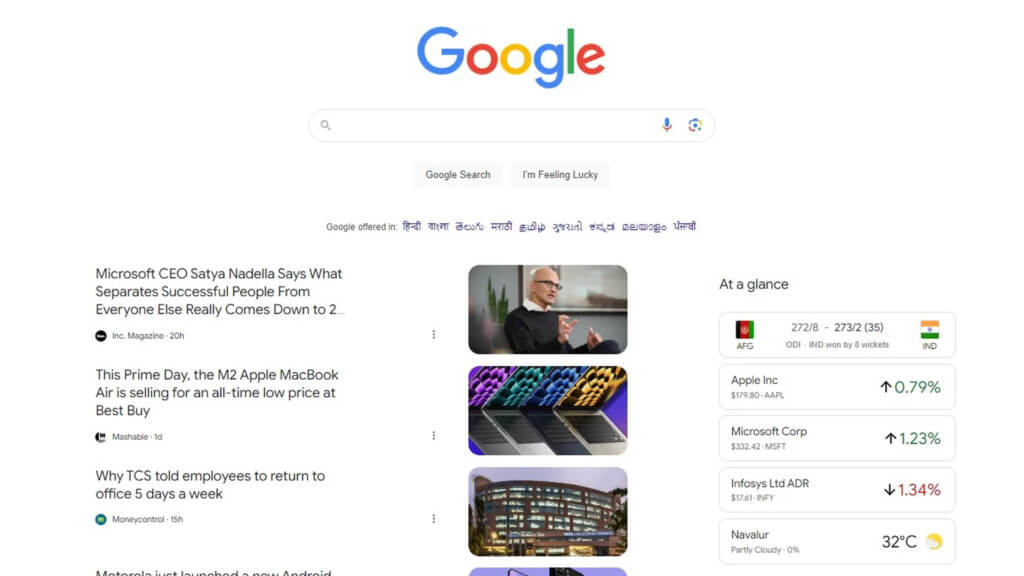Search giant Google is currently experimenting with a feature that could bring its Discover feed to the desktop version of its homepage. Google has confirmed the feature, and MSPowerUser initially noticed it. Designed to show suggested content such as news, weather updates, sports scores, and stock market figures, the Discover feed is situated next to the traditional Google search bar.

The look of the Discover feed on desktop closely resembles its mobile counterpart. It’s filled with various content from different categories like news, entertainment, sports, and finance. All these posts are arranged in a horizontal scroll, giving it a carousel-like appearance.
Why Google is considering Discover for desktop
The idea behind testing the Discover feature on desktops is to encourage users to spend more time on Google’s homepage. Since many users initiate searches directly from their browser’s address bar, introducing Discover might attract them back to Google’s homepage. This will allow them to explore recommended stories that catch their interest.
For content publishers, the Discover feed offers an exciting opportunity. Their content can be featured prominently without the need for paid ads. However, it also means stiffer competition, as only a few will get the coveted spots on Google’s high-traffic homepage.
What could happen next?
If the tests prove successful, Google may expand the Discover feature to desktops globally, much like its mobile version. This would significantly increase referral traffic to various news and content websites worldwide. Although the test is confined to India, Google has shown interest in personalising desktop search experiences. Last year, the company dabbled in adding modules like news and stock tickers to desktop searches.
For now, the minimalist design of Google’s homepage remains untouched for most users. However, the introduction of the Discover feed indicates Google’s aim to keep its homepage up-to-date in a world where search bars are almost everywhere.
On the mobile platform, Google launched the Discover feed in the United States in 2018 and expanded its global reach. Currently, it’s accessible in over 100 countries. If brought to desktop, this feature could reach an even larger audience.
Unlike on mobile, where Discover takes up the whole homepage, the desktop test version is more condensed. It fits neatly below the central Google search bar, maintaining the iconic, simple design of Google’s homepage. When users click on a story in the Discover feed, they are directed straight to the original publisher’s website. This design choice makes the feature more appealing to publishers than other Google initiatives like Search Generative Experience (SGE).





